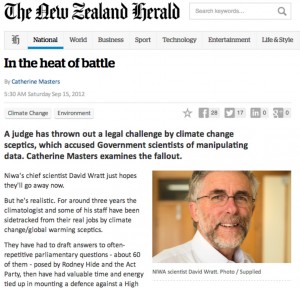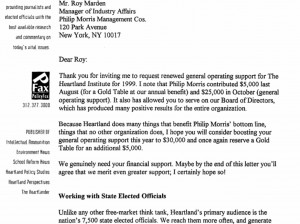– An intense article, below, about how very much of our digital data is being sucked up and analyzed for all sorts of reasons and we do, and will, have very little to say about it.
– It’s the digital future – read it and weep. Some quotes:
“In November, the British tech blogger Doctorbeet discovered that his new LG Smart TV was snooping on him. Every time he changed the channel, his activity was logged and transmitted unencrypted to LG. Doctorbeet checked the TV’s option screen and found that the setting “collection of watching info” was turned on by default. Being a techie, he turned it off, but it didn’t matter. The information continued to flow to the company anyway.”
the Drug Enforcement Administration already subpoenas utility company records to determine if electricity consumption in specific homes is consistent with a marijuana-growing operation. What will come next? Will eating habits collected by smart fridges be repackaged and sold to healthcare or insurance companies as predictors of obesity or other health problems — and so a reasonable basis for determining premiums? Will smart lights inform drug companies of insomniac owners?”
“When everything is increasingly tracked and viewed through the lens of technological omniscience, what will the effect be on dissent and protest? Will security companies with risk assessment software troll through our data and crunch it to identify people they believe have the propensity to become criminals or troublemakers — and then share that with law enforcement? (Something like it already seems to be happening in Chicago, where police are using computer analytic programs to identify people at a greater risk of violent behavior.)”
– dennis
– = – = – = – = – = – = – = – = – = – = –
Twice in my life — in the 1960s and the post-9/11 years — I was suddenly aware of clicks and other strange noises on my phone. In both periods, I’ve wondered what the story was, and then made self-conscious jokes with whoever was on the other end of the line about those who might (or might not) be listening in. Twice in my life I’ve felt, up close and personal, that ominous, uncomfortable, twitchy sense of being overheard, without ever knowing if it was a manifestation of the paranoia of the times or of realism — or perhaps of both.
I’m conceptually outraged by mass surveillance, but generally my personal attitude has always been: Go ahead. Read my email, listen to my phone calls, follow my web searches, check out my location via my cell phone. My tweets don’t exist — but if they did, I’d say have at ‘em. I don’t give a damn.
And in some sense, I don’t, even though everyone, including me, is embarrassed by something. Everyone says something about someone they would rather not have made public (or perhaps have even said). Everyone has some thing — or sometimes many things — they would rather keep to themselves.
Increasingly, however, as the U.S. surveillance state grows ever more pervasive, domestically and globally, as the corporate version of the same expands exponentially, as prying “eyes” and “ears” of every technological variety proliferate, the question of who exactly we are arises. What are we without privacy, without a certain kind of unknowability? What are we when “our” information is potentially anyone’s information? We may soon find out. Arecent experiment by two Stanford University graduate students who gathered just a few month’s worth of phone metadata on 546 volunteers has, for instance, made mincemeat of President Obama’s claim that the NSA’s massive version of metadata collection “is not looking at people’s names and they’re not looking at content.” Using only the phone metadata they got, the Stanford researchers “inferred sensitive information about people’s lives, including: neurological and heart conditions, gun ownership, marijuana cultivation, abortion, and participation in Alcoholics Anonymous.”
And that’s just a crude version of what the future holds for all of us. There are various kinds of extinctions. That superb environmental reporter Elizabeth Kolbert has just written a powerful book, The Sixth Extinction, about the more usual (if horrifying) kind. Our developing surveillance world may offer us an example of another kind of extinction: of what we once knew as the private self. If you want to be chilled to the bone when it comes to this, check out today’s stunning report by the ACLU’s Catherine Crump and Matthew Harwood on where the corporate world is taking your identity. Tom
Invasion of the Data Snatchers
Big Data and the Internet of Things Means the Surveillance of Everything
By Catherine Crump and Matthew HarwoodEstimates vary, but by 2020 there could be over 30 billion devices connected to the Internet. Once dumb, they will have smartened up thanks to sensors and other technologies embedded in them and, thanks to your machines, your life will quite literally have gone online.
The implications are revolutionary. Your smart refrigerator will keep an inventory of food items, noting when they go bad. Your smart thermostat will learn your habits and adjust the temperature to your liking. Smart lights will illuminate dangerous parking garages, even as they keep an “eye” out for suspicious activity.
Techno-evangelists have a nice catchphrase for this future utopia of machines and the never-ending stream of information, known as Big Data, it produces: the Internet of Things. So abstract. So inoffensive. Ultimately, so meaningless.
A future Internet of Things does have the potential to offer real benefits, but the dark side of that seemingly shiny coin is this: companies will increasingly know all there is to know about you. Most people are already aware that virtually everything a typical person does on the Internet is tracked. In the not-too-distant future, however, real space will be increasingly like cyberspace, thanks to our headlong rush toward that Internet of Things. With the rise of the networked device, what people do in their homes, in their cars, in stores, and within their communities will be monitored and analyzed in ever more intrusive ways by corporations and, by extension, the government.
– More… ➡
– Research thanks to: Piers L.



